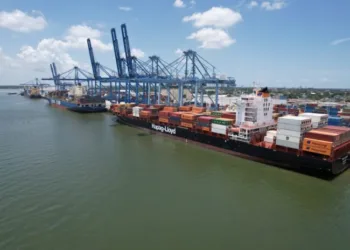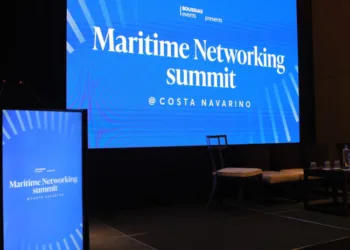This article is contributed content from an independent writer. It does not represent the views or opinions of FreightWaves or any of its subsidiaries.
By Matthew Leffler, The Armchair Attorney
In a ruling that tempers but doesn’t extinguish the flames of the trucking industry’s transparency debate, a federal judge in Washington, D.C., dismissed Pink Cheetah Express LLC’s lawsuit against Total Quality Logistics (TQL) on September 12, 2025. The decision, an 8-page memorandum opinion from U.S. District Judge Sparkle L. Sooknanan, hinges on a narrow but pivotal interpretation: An FMCSA email urging compliance isn’t the kind of “order” that motor carriers can enforce in court under federal law.
This marks a setback for Pink Cheetah, the plucky Florida-based motor carrier that first hauled a load of ice cream for TQL in January 2023, sparking a chain of events that exposed alleged 44% broker margins and ignited calls for stricter disclosure rules. But as the dust settles, the case leaves room for an amended complaint or appeal, testing whether broker contract waivers violate regulations outright, a question that could ripple across the $9 billion TQL empire.
The Ruling: Guidance, Not Gospel
At its core, Pink Cheetah’s February 25, 2025, complaint sought to enforce a November 30, 2023, FMCSA email directing TQL to remove transparency waivers from its contracts and provide requested records for 15 loads. The carrier argued this email qualified as an “order” under the Interstate Commerce Commission Termination Act (49 U.S.C. § 14704(a)(1)), allowing private lawsuits to compel DOT compliance.
Judge Sooknanan disagreed, granting TQL’s motion to dismiss. Drawing on D.C. Circuit precedent like Rhea Lana, Inc. v. Dep’t of Lab., the court characterized the email as “workaday advice,” mere guidance reminding TQL of existing obligations under 49 C.F.R. § 371.3, rather than an authoritative command. The email’s language, suggesting the waiver “may be a violation” and offering “guidance” on compliance, fell short of the “injunction or mandate” needed to trigger enforcement. The order reinforces the brokerage industry’s reliance on contractual freedom, at least for now.
A Footnote That Could Rewrite the Playbook
Don’t count Pink Cheetah out just yet, this kitty has claws. In a telling footnote, Judge Sooknanan flagged an alternative path: Carriers might sue to enforce the “regulation itself” (49 C.F.R. § 371.3) as an “order” under § 14704, arguing that formal rulemaking might trump contract waivers. “Some courts have suggested that a regulation promulgated through a formal rulemaking process may serve as an ‘order’ that gives rise to a cause of action,” the opinion notes, citing Owner-Operator Indep. Drivers Ass’n v. Mayflower Transit, Inc. Pink Cheetah’s original complaint zeroed in on the email, ignoring broader theories in briefing.
But the judge’s nod opens the door for an amended filing, perhaps arguing waivers are per se illegal, including shipper-paid freight charges. As I speculated previously, tee up appeal to the D.C. Circuit, potentially establishing circuit splits on FMCSA’s enforcement muscle. Given that nearly every freight broker utilizes similar transparency waivers, this suit remains among the most important in the brokerage industry today. The ruling doesn’t kill that urgency; it just shifts the battlefield.
Industry Ripples: From Ice Cream to Iceberg
For TQL, the dismissal was a breather amid a stormy year. The Cincinnati giant, with its aggressive sales tactics and spot-market dominance, has faced scrutiny over margins. Recent FMCSA rulemaking, extended for comments through late 2025, could affirm brokers aren’t “shippers” exempt from disclosure rules under 49 U.S.C. § 14101(b). What’s more, rather that promulgate a final rule, the FMCSA announced a supplemental rulemaking on broker transparency, which is set for May of 2026.
As many recall, that proposed rule on transparency would have required records of a brokered transaction to be produced within 48 hours of a request and in an electronic format. Will waivers be addressed in the supplemental rule making. Time will tell. Meanwhile, tariffs and spiking freight fraud have brokers on edge, making transparency a flashpoint for carrier trust.
What’s Next for the Transparency Tango?
Pink Cheetah had until mid-October to amend or appeal, per court timelines. Rather than amend its complaint and take another bite at the proverbial apple, Pink Cheetah appealed the dismissal to the Court of Appeals for the District of Columbia. For lawyers in the know, the DC Circuit is the Madison Square Garden of administrative law appeals, so expect an interesting process. For now, we wait timelines for briefing and oral argument in the case. Is Pink Cheetah SCOTUS bound?
Regardless of what happens on appeal, Pink Cheetah can still amend its complaint. If refiled, expect a deeper dive into whether § 371.3 voids waivers industrywide, potentially compelling TQL to disclose records for those 14 remaining loads and beyond. As markets stabilize post-tariffs, this ruling reminds us that transparency isn’t guaranteed by a single email, but by persistent pressure. Will Pink Cheetah’s roar echo into the 2026 rulemaking, or fade as another footnote? The industry, from truck stops to boardrooms, is watching closely.
Matthew Leffler is a trucking industry expert and an adjunct professor of law at Michigan State University College of Law. He can be reached at [email protected].
The post TQL scores win in Pink Cheetah transparency suit, Pink Cheetah appeals appeared first on FreightWaves.






















